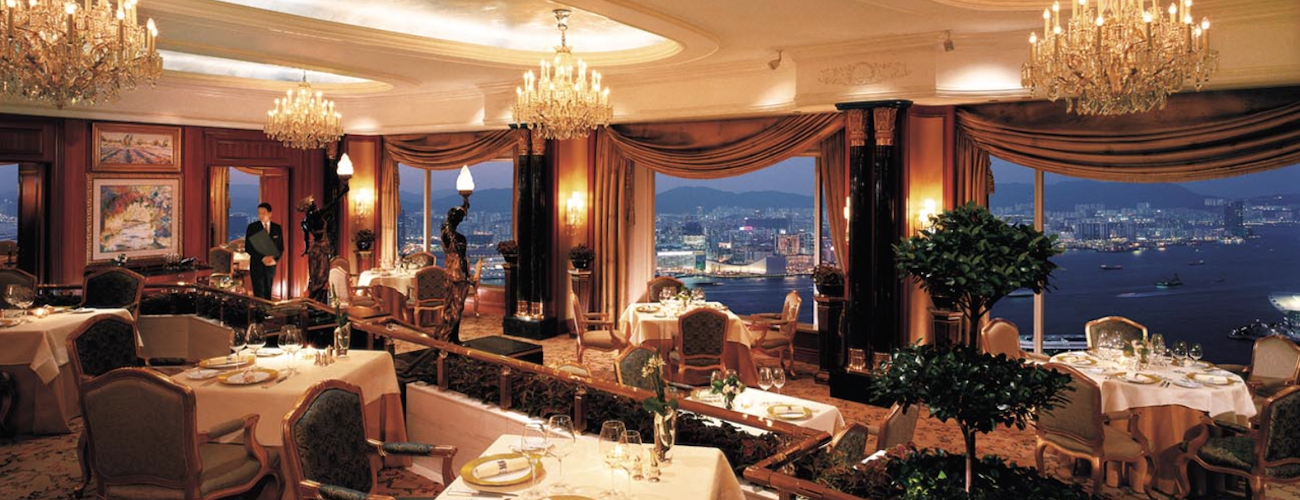Sign up for The Media Today, CJR’s daily newsletter.
English is fun. Let’s prove it:
A “restaurant” can be full of “glamour.”
But the “restaurateur” is “glamorous.”
Note the difference? Each drops a letter when it gains a suffix. This is not the kind of letter-dropping that occurs with words like “fire/firing,” where the letter that’s dropped is at the end of the original word. No, “restaurant” and “glamour” both drop a letter inside their root words. It’s an unusual situation.
In the case of “glamour/glamorous,” you can blame grammar. We mean that literally: The word “glamour” arose from “grammar.”
As Merriam-Webster notes, “grammar” simply meant learning and that often included subjects like astrology and magic, the mysterious “dark arts.” In the 1700s, the Scottish word “glamer” or “glamour” appeared to mean “a magic spell.” It later moved into more mainstream English with the sense of “a mysterious attractiveness.”
The British, as we know, spell a lot of words with “our,” like “colour”; we Americans drop that “u” in nearly all cases and spell it “color.” “Glamour” is one of the few exceptions to that, keeping the “u” in both British and American English.
But the British see things our way when they add some suffixes to many of their “our” words. So “colour” becomes “coloration” in British English. But (have we mentioned that English is kooky?) with other suffixes, the “u” stays put: “colour” becomes “colourful.”
In other words, the British have to remember which suffixes allow them to keep the “u” and which ones make them drop it. Here, Americans got the better end of the deal: We just have to remember that “glamour” drops its “u” when it gains any suffix.
Someone is probably saying, “But I’ve seen it spelled glamor.” Yes, you have. That spelling is a “variant,” meaning it’s not the “proper” spelling. If you want to save the extra letter, go ahead.
No one really knows why “glamour” got to keep its “u” when so many other words lost them when they crossed the Atlantic. But why did “restaurant” lose its “n” when it became “restaurateur”?
It didn’t. To be more precise, it’s had it when it wasn’t supposed to, and seems to be getting it back.
Both “restaurateur” and “restaurant” come from the French verb “restaurer,” to restore, whose present participle is “restaurant.” The entertaining “World Wide Words” blog notes that the early “restaurant” was a medieval French adjective for anything restorative, be it culinary or spiritual. In the mid-1600s, the noun “restaurant” referred to a meat broth served to invalids. In France in the mid-1700s, the blog says, fashionable establishments selling food opened, and came to be known as “restaurants.” The Oxford English Dictionary says “restaurant” entered English in 1806.
As for “restaurateur,” let’s go back to the French. It’s literally the French masculine noun form of “restaurer,” and it originally had no connection to food. As the WWW blog notes: “At first, he was an artisan who restored or repaired objects. In the seventeenth century, he was an assistant who set broken bones for a surgeon. In the 1770s he became a man skilled in creating this special soup called a restaurant.”
In English, the OED says, “restaurateur” first appeared in 1782 to mean the restaurant itself, but within 10 years it was being used mostly for the person owning or running the restaurant. We Americans first put the “n” in there, in 1837, the OED says, and then we tried dropping a “u” and making it just “restauranter.” That usage, though, is rare, and may have resulted from typographical errors (or a misunderstanding of French).
Garner’s Modern English Usage says that “restauranteur” is “a common error that began appearing in the mid-19th century and spread especially after 1960.” The “misspelling” is at Stage 2 of the five-stage Language-Change Index, the equivalent of a triple bogey in Garner’s golf analogy.
But it is slowly gaining acceptance: It is listed as a variant spelling in the American Heritage Dictionary, and Merriam-Webster calls it “a standard variant, albeit one that continues to be used less frequently than ‘restaurateur.’ ”
Though style guides, including the one from The Associated Press, want “restaurateur,” when something gets labeled a “standard variant,” acceptability can’t be too far off.
Has America ever needed a media defender more than now? Help us by joining CJR today.



